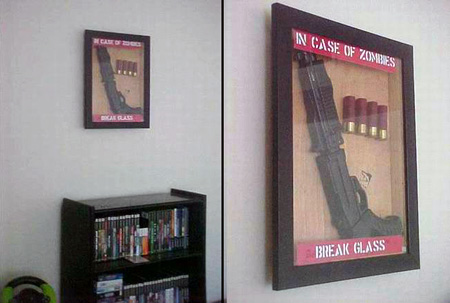wrong, there are plenty of cases of burglars breaking in to homes, inuring themselves then suing the homeowners. I wont give you -1, but I suggest you dont give out -1 without doing a little reading in the future
![Slap [slap] [slap]](/xen/styles/default/xenforo/smilies.vb/025.gif)
Sorry, but you won't find a case where a burglar deliberately broke some glass, cut themselves on the glass, and then successfully sued the homeowner. If you have such a case, the please show a citation.
Second, the poster did not say anything about the burglar suing the homeowner. Here's the post in question:
jusr remember when the thief does brake in and cuts himself breaking the glass you will be fully prosecuted by the AG. If he happens to bleed to death you get a wrongful death charge,
1) You won't be "fully prosecuted by the AG." There is nothing that the AG could prosecute you for, and, furthermore, if you were prosecuted, it would be by the DA, not the AG. 2) There is no way you would get charged with "wrongful death" in such circumstances.
There was a recent case in MA where a person stored firearms in a wooden cabinet that was easily broken into (the screws to the hasp were exposed). I don't remember all of the details, but I believe that another resident in the home broke into the cabinet by removing some of the screws, and that the perp was also emotionally disturbed. There was a ruling concerning whether that storage was acceptable or not. I don't recall the details of the ruling. I could see a MA judge consider that a glass front case is not secure storage, that is a far different legal issue than that proposed by the original post.
But no, there is no way that if a burglar broke a window in your home, cut himself on the broken glass, bled to death, and you then found him, deceased, when you returned home, that you would be charged with manslaughter or murder. Nor would the same be possible if the perp broke a glass fronted cabinet.

![Roll Eyes [rolleyes] [rolleyes]](/xen/styles/default/xenforo/smilies.vb/042.gif)
![Slap [slap] [slap]](/xen/styles/default/xenforo/smilies.vb/025.gif)
![Wink [wink] [wink]](/xen/styles/default/xenforo/smilies.vb/002.gif) )
)
